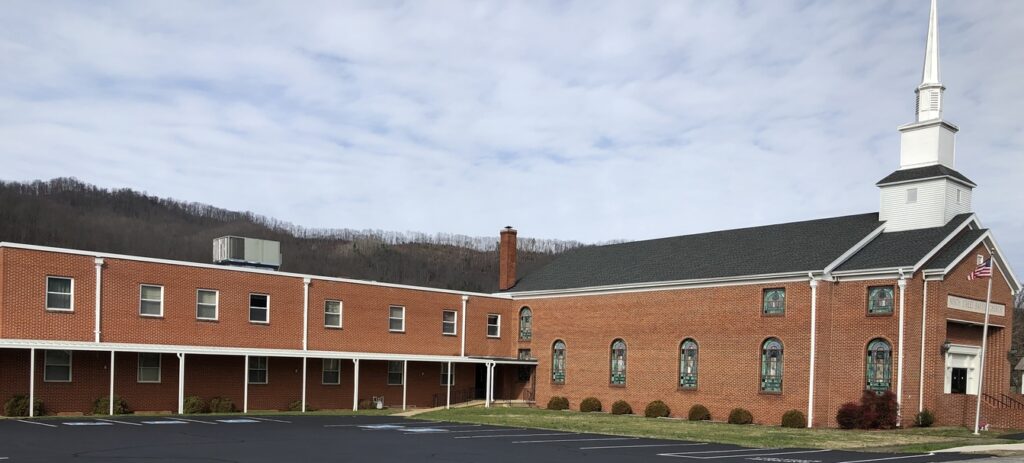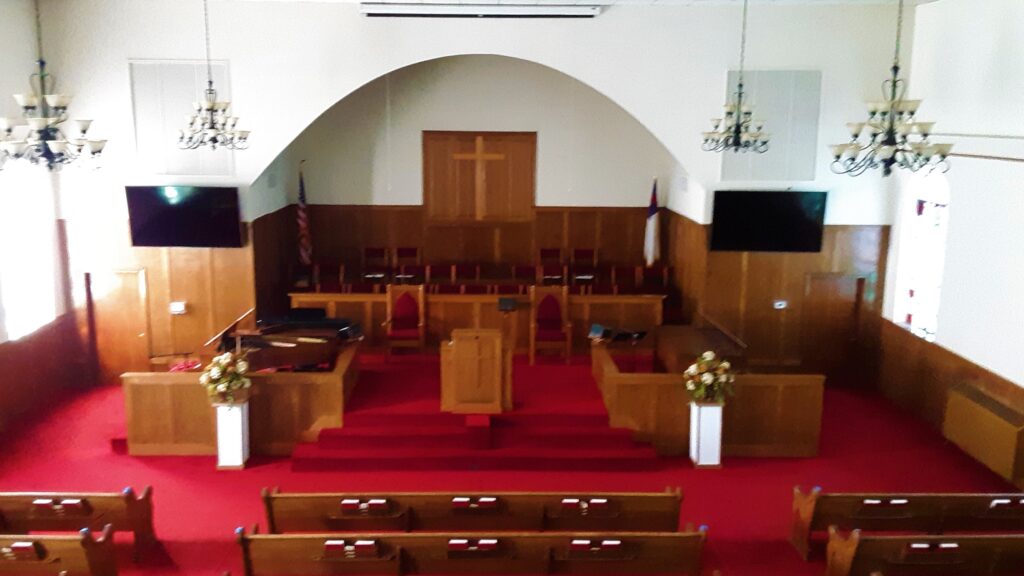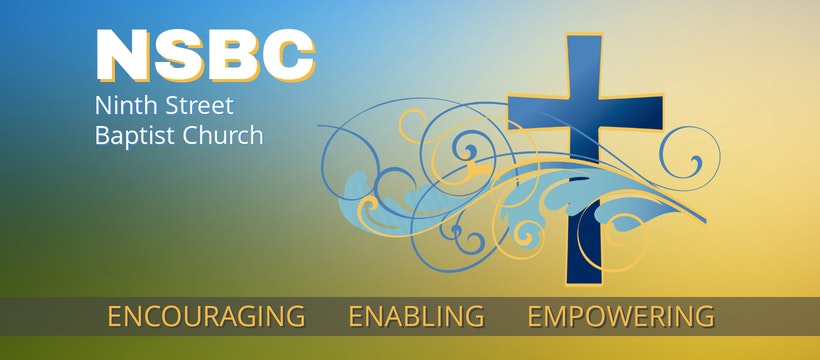A History of Ninth Street Baptist Church
In November 1925, Ninth Street Baptist Mission was organized by First Baptist Church in downtown Erwin. The pastor of First Baptist Church at that time was Rev. A.C. Sherwood. His son James was going into the ministry and was the first speaker at Ninth Street Baptist Mission. After that, Rev. Black was the preacher for two Sundays each month. On January 6, 1929 Ninth Street Baptist Mission became Ninth Street Baptist Church. The first full time pastor was Rev. H.F. Wright when Ninth Street was still a mission.
The women of the church had started working to develop a community at Ninth Street Mission. The Women’s Missionary Society was founded in September of 1925, before the mission was formed. From that beginning they worked to grow the church. From working to get a piano for the mission to donating $100 for the brick veneer on the outside.
The original building is still part of the church building serving as the church office, pastor’s study, choir room and class rooms.
In October of 1929,there was the Great Stock Market Crash that left the country in an economic depression. But it did not stop the work at Ninth Street. First Baptist church helped the young church during this period by asking members to move to help Ninth Street who had stable employment.
Also, the women of the church changed their focus from a mission field to a home field doing what they always did – taking care of their families and those in need.
Rev. Wright stayed with the church from the beginning until he left in October 1939. Before he left, the first of many ordained ministers was ordained, Rev Wright’s son Freeman Wright. After Rev. Wright left in 1939, Rev C. W. Hileman became pastor until August 1941.
The 1940’s brought with it World War II. The men went off to fight and the women stayed home, supported the families and the churches. Church was considered a place of security. Ninth Street like many other churches at the time, supported the cause through service projects. Beginning in October 1945, Rev. Robert H. Dills became the pastor until May 1950.
Church at that time was very different than it is today. Most states (including Tennessee) had laws that kept businesses closed on Sunday. That mean that people had Saturday to prepare for Sunday. Sunday meant more than just Sunday School, Worship Services and Bible Studies, it also meant time to rest with the family.
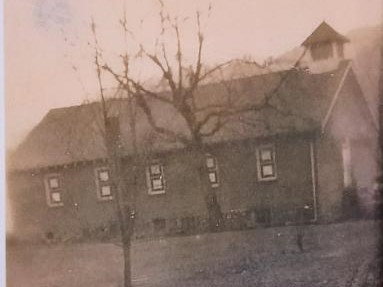
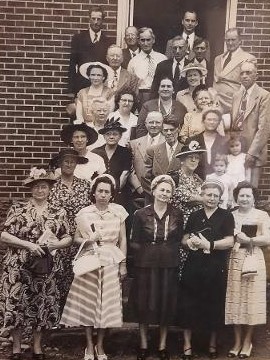
In 1950 a new auditorium and classrooms under the auditorium were completed while Rev. Aden Childress was pastor. In 1951, there were at least 25 of the 63 charter members still attending Ninth Street. Also in the early 1950’s, Ninth Street started a mission of its own in the Fishery Loop area. Good Shepherd is still a thriving church today. The music program at Ninthh Street was going strong. There were 25 members in the Children’s Choir and 26 members in the Adult Choir.
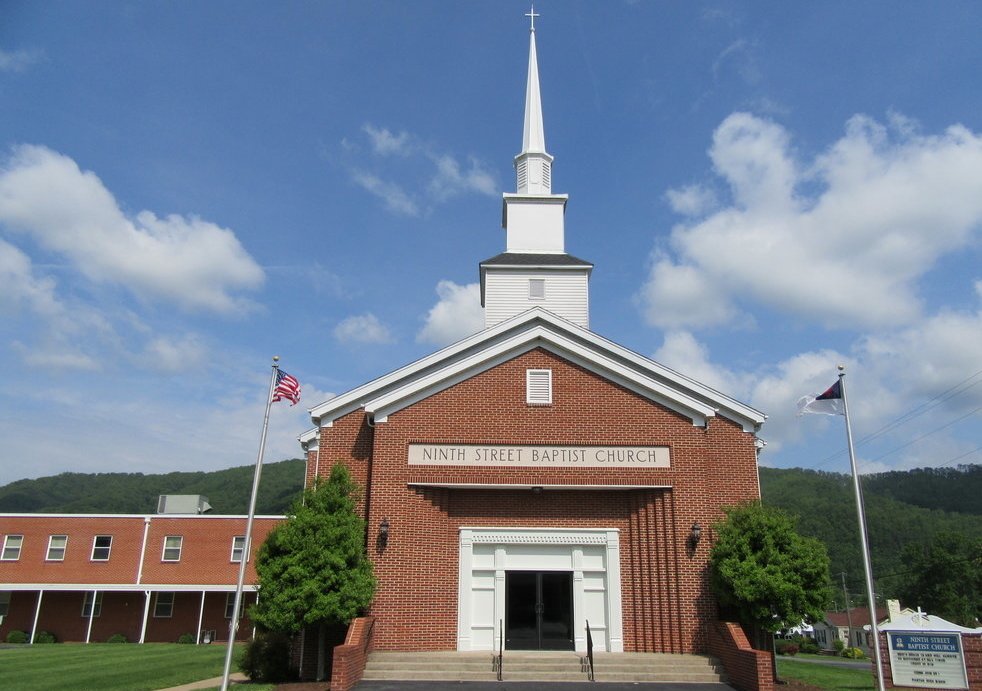
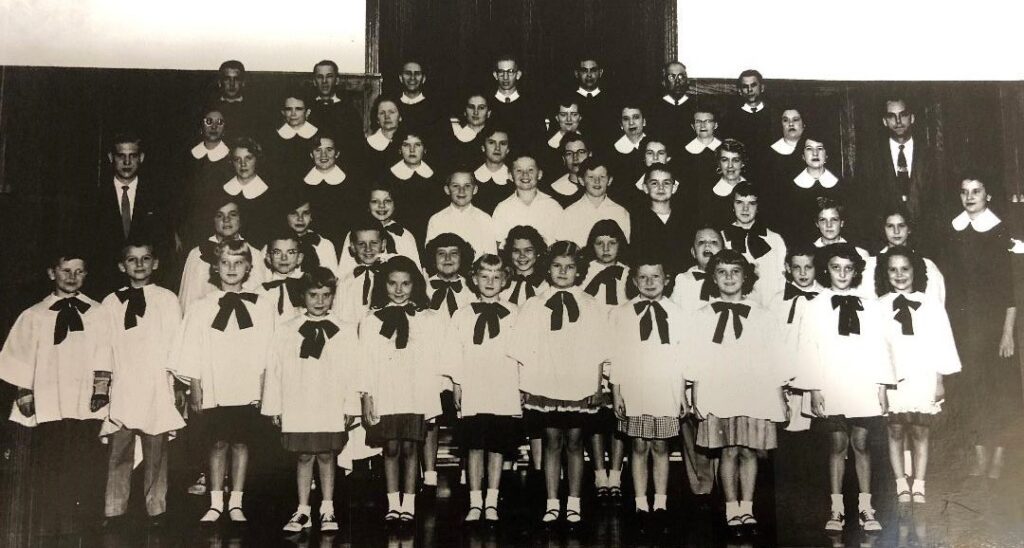
Mission work remained an important part of church life in the 1960’s. The Dorcas Sunday School class bought the school lunch for a needy student one year and for a different needy student the next year. On July 9, 1967 the morning worship services were broadcast once a month on WEMB radio. In 1969, an educational wing was added that not only added Sunday School classrooms but also a Fellowship Hall on the lower level. Graham Brooks was the pastor at that time.
The 1970’s brought even more opportunities for missions and ministry. In 1972, with Gilbert Adams as pastor, an old school bus was purchased and so began the Bus Ministry of the church. This ministry continues today.
In January 1975, the monthly worship service radio broadcast became a weekly broadcast and continued for many years.
The 1970’s also saw another mission started by Ninth Street. Omega Baptist Church began with Rev. Jack Daniels as the first pastor. He was one of many men ordained by Ninth Street to the gospel ministry.
The 1980’s also saw the continuation of the weekly service radio broadcast. In 1985, TV broadcasting was added. The services were recorded and then broadcast the following week. This continued for several years. In the 1980’s, we began helping at the Jacob’s Well booth at the Appalachian Fair in Gray every year.
The 1990’s brought several areas of service to the church. The youth started attending the Holston Association Youth retreat every year. Participation in Promise Keepers have encouraged us in our daily walks with God. In 1998, the radio broadcast on WXIS – FM 103.9 was resumed each Sunday morning. Also, the church started helping with the community Thanksgiving meals for shut-ins that need a hot meal on Thanksgiving day. This has turned into a multi-church event each year. We serve around 300 meals each year.
The 2000’s have brought the addition of several ministry opportunities. One example that has turned into a family, multi-generational event is the RA’s Pinewood Derby. The children and adults of the church get a pinewood car and decorate it. Then one Wednesday night the whole family comes together fellowship and race their cars. The local Apple Festival provides a chance to help visitors with shuttle service from the church to and from the downtown festival site and free water. A mission trip to an Indian reservation in Montana was also accomplished at this time. We started a food pantry and a clothes closet.
Many years have passed since 1925, but the purpose of Ninth Street Baptist Church remains the same. We still serve the same God as was served then. We still strive to be a light unto our community by allowing the love of God to shine through its members.
